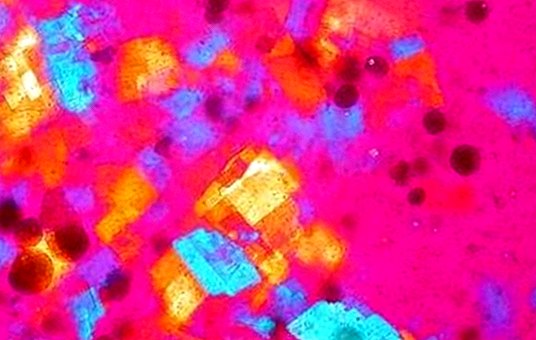Main contraindications of aspirin or acetylsalicylic acid
Known scientifically with the name of acetylsalicylic acid, and more popularly with the commercial name of aspirin, we are probably in front of one of the most well-known, consumed and popular drugs or medications. It is a drug used as an analgesic and anti-inflammatory, useful to relieve mild and moderate pain and also inflammation.
It is also useful as platelet antiaggregant (indicated by both for people at risk of blood clot formation) or as antipyretic in order to reduce high fever. In fact, it is common for many doctors to prescribe aspirin in order to prevent heart or brain attacks (strokes), angina and transient ischemic attacks.

On the one hand, aspirin is able to reduce the substances in our body that cause inflammation or pain. While, on the other, it prevents platelets - blood cells - from sticking together to form clots. Therefore, those who have suffered a heart attack should take aspirin, since it prevents the formation of other blood clots in the coronary arteries.
Taking into account that there are different types of aspirin, we must bear in mind that the dose regarding the amount of aspirin to take may vary, so it is the doctor or the pharmacist who can help to obtain more information about how and when to take it. However, it is necessary to keep in mind that aspirin can be taken as prescribed by the medical specialist, or without being prescribed.
At the time of taking aspirin we should know that if they are taking other medicines these could increase or decrease the effect of acetylsalicylic acid, causing interactions. Among the medications or drugs that can cause the appearance of interactions, we can mention the following:
- Ibuprofen.
- Anticoagulants
- Other drugs that contain aspirin (with or without a prescription).
- Acetaminophen.
- Corticosteroids
- Naproxen
- Ketoprofen
- Medications for diabetes.
- Medications for high blood pressure (hypertension).
In addition, it is necessary avoid the consumption of alcoholic beverages during treatment with aspirin, since both products combined can damage the stomach internally.
When is not the use of aspirin recommended?
But as with any other medication, Aspirin also has certain contraindications that make that in certain circumstances, before certain moments or conditions, their consumption is not completely safe or even is completely and totally contraindicated.
The most important contraindications of aspirin are the following:
- Allergy to aspirin.
- Hemophilia.
- Hodgkin's disease.
- Gastric ulcer, bleeding ulcer or other digestive and / or stomach problems.
- Kidney disease
- Liver disease
- Heart disease or heart failure.
- Asthma.
- Drop.
- Anemia (or ever presented)
- Presence of nasal polyps.
- If you plan a pregnancy, you are pregnant or you are breastfeeding your child.
- Before a surgical or dental procedure.

In any of these conditions it is very important that the doctor knows our medical history, especially before beginning to consume aspirin regularly.
It is also possible that some side effects, such as gastrointestinal disorders (gastric irritation, gastric ulcer, duodenal ulcer, vomiting and nausea), hepatitis, renal dysfunction, bleeding or elevation of liver enzymes. This article is published for informational purposes only. It can not and should not replace the consultation with a Physician. We advise you to consult your Trusted Doctor. ThemesAnti-inflammatory analgesic



